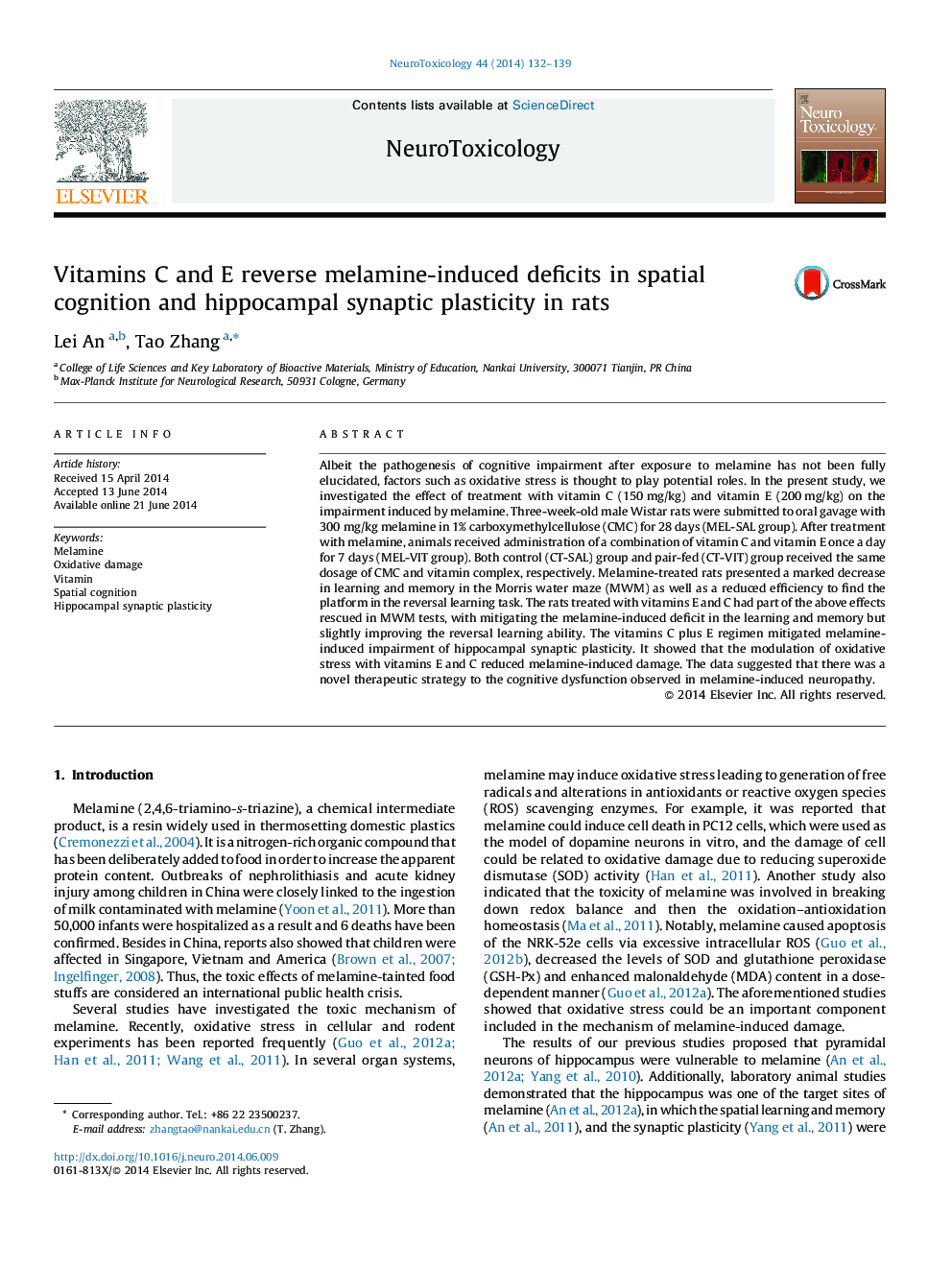| Article ID | Journal | Published Year | Pages | File Type |
|---|---|---|---|---|
| 2589668 | NeuroToxicology | 2014 | 8 Pages |
•Effect of vitamins C and E on neurotoxicity induced by melamine was evaluated.•MWM task, electrophysiological recordings and ELISA method were employed.•Combined vitamins significantly improved the spatial cognition of rats.•Combined vitamins alleviated melamine-induced synaptic plasticity impairments.
Albeit the pathogenesis of cognitive impairment after exposure to melamine has not been fully elucidated, factors such as oxidative stress is thought to play potential roles. In the present study, we investigated the effect of treatment with vitamin C (150 mg/kg) and vitamin E (200 mg/kg) on the impairment induced by melamine. Three-week-old male Wistar rats were submitted to oral gavage with 300 mg/kg melamine in 1% carboxymethylcellulose (CMC) for 28 days (MEL-SAL group). After treatment with melamine, animals received administration of a combination of vitamin C and vitamin E once a day for 7 days (MEL-VIT group). Both control (CT-SAL) group and pair-fed (CT-VIT) group received the same dosage of CMC and vitamin complex, respectively. Melamine-treated rats presented a marked decrease in learning and memory in the Morris water maze (MWM) as well as a reduced efficiency to find the platform in the reversal learning task. The rats treated with vitamins E and C had part of the above effects rescued in MWM tests, with mitigating the melamine-induced deficit in the learning and memory but slightly improving the reversal learning ability. The vitamins C plus E regimen mitigated melamine-induced impairment of hippocampal synaptic plasticity. It showed that the modulation of oxidative stress with vitamins E and C reduced melamine-induced damage. The data suggested that there was a novel therapeutic strategy to the cognitive dysfunction observed in melamine-induced neuropathy.
